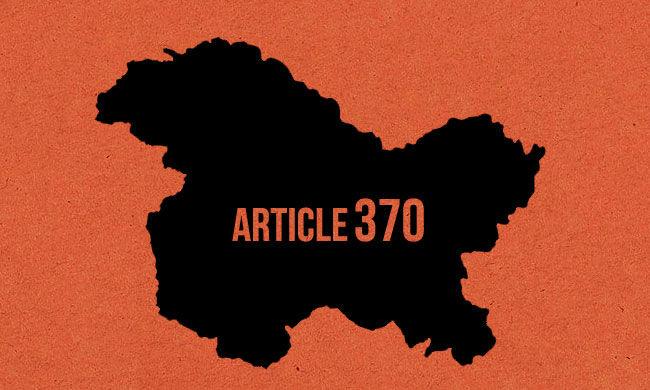Story of Article 370 of the constitution of India.
Maharaja Hari Singh, who was the King of Jammu and Kashmir wanted it to be called another Switzerland. He did not want to merge Jammu and Kashmir with Pakistan or with India. But Pakistan unfairly attacked Jammu and Kashmir and due to a weak-armed force, Hari Singh was forced to ask India for help. India agreed to help only if Jammu and Kashmir would merge with India. Hence, there was an agreement signed between Maharaja Hari Singh and Jawahar Lal Nehru on 26 October 1947. And also a special privilege was given to the citizens of J & K under Article 370 ( eventually written by Gopalaswami Ayyangar).
Article 370 provides certain provisions to the state of Jammu and Kashmir, giving it special autonomy.
Special privilege to the J & K citizens
- The Jammu and Kashmir citizens have dual citizenship.
- The term period of Jammu and Kashmir legislative assembly is of 6 years unlike that of other states of India.
- The order of the Supreme court is not valid in Jammu and Kashmir.
- Only a permanent resident of Kashmir can own land in Kashmir. No outsider can have landed in Kashmir.
- A Women who marries an Indian of the other state would no more have its Kashmiri citizenship. Whereas if she marries a Pakistan, her citizenship will be the same ( ie, of a Kashmiri )
- Except for defense, foreign affairs, and communication, all the other laws have to be passed by the State government.
- All the bills passed by the parliament should also have to pass by the State government.Example: The RTI can not be filed by the Kashmiri citizens because the RTI bill is not passed by the State government.
- The Article opposes the implementation of national emergency and financial emergency under Article 352 of the Indian constitution. The emergency can only be imposed in case of external aggression.
- Shariat law applies to women of Kashmir.
- RTE is also not implemented in Kashmir.
Pros of Article 370
No outsider is allowed to purchase land in Jammu and Kashmir.It's difficult for outsiders to establish a business in Kashmir, so the citizens of Kashmir get an advantage here as there are less competition and more opportunities for the citizens.
Unlike Delhi NCR, there is no population blast in Kashmir because of the low settlement of people of other states in Kashmir. Local brands are still running it also includes Low crime rate (but high terrorism).
Cons of Article 370
Lack of medical facilities because there are less private hospitals and the condition of government hospitals are poor. Due to lack of employment, youths enroll themselves in terrorism. No industrial sector is available. Corruption is more in J & K than from other states. Only Muslims can become Chief ministers of J & K. So the politics is run in the name of religion there. Poor education and low GDP.
Gender bias
Many claims that the article is gender-biased as it gives more benefits to men, not to women. But this is only for the land and marriage case as I have mentioned above.
Special provision under Article 35A to J & K
- Employment under the State government.
- Acquisition of immovable property in the state.
- Settlement in the State.
- Right to scholarship and such other forms of aid as the state government may provide.
Source by @Tanmay Pant, B.sc.( honours) Geology, Hansraj College, University of Delhi (2019).


